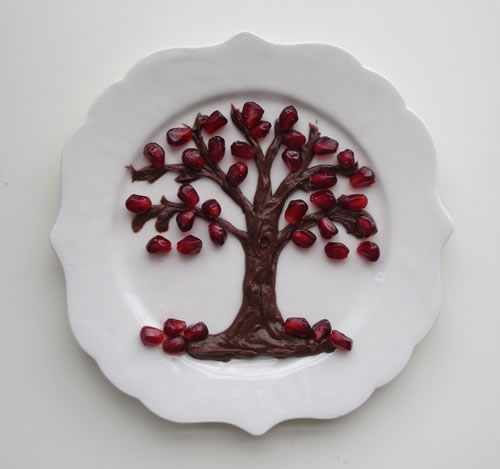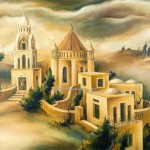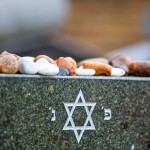
Tu bi Shevat: the New Year for trees.
(Will fall, this year, on February 11th)
“Tu biShevat “ ( the 15th of the 11th month of the Jewish calendar) is a feast which is mentioned in the Mishna: “The 1st of Shevat is the new year for the trees, according to Beith Shammai; however, Beit Hillel says that it is on the 15th of Shevat”.(Mishna Rosh Hashana 1,1). After the season of rains, the earth is ready to receive the seeds. The tradition is to celebrate on this day the plantation of the trees, when the sap begins to go up in the trees and the earth is waking up after the winter.
 In the 16th century, the kabbalists gave a mystic signification to the feast, celebrating the strong relation which exists between human being and creation. They invented a “seder”, meal where they eat all kinds of fruits, especially the 7 traditional fruits of the promised land ( Dt 8,8) and of course the meal is punctuated by several cups of wine.
In the 16th century, the kabbalists gave a mystic signification to the feast, celebrating the strong relation which exists between human being and creation. They invented a “seder”, meal where they eat all kinds of fruits, especially the 7 traditional fruits of the promised land ( Dt 8,8) and of course the meal is punctuated by several cups of wine.
It is for many the moment to renew their awareness regarding the responsibility toward creation.
************
Here are texts from “Laudato si” (opening and conclusion) which can help us to renew, we too, at the occasion of this feast, our awareness regarding our responsibility toward the Creation and to celebrate it in our own way.
- “LAUDATO SI’, mi’ Signore” – “Praise be to you, my Lord”. In the words of this beautiful canticle, Saint Francis of Assisi reminds us that our common home is like a sister with whom we share our life and a beautiful mother who opens her arms to embrace us. “Praise be to you, my Lord, through our Sister, Mother Earth, who sustains and governs us, and who produces various fruit with coloured flowers and herbs”.[1]
2. This sister now cries out to us because of the harm we have inflicted on her by our irresponsible use and abuse of the goods with which God has endowed her. We have come to see ourselves as her lords and masters, entitled to plunder her at will. The violence present in our hearts, wounded by sin, is also reflected in the symptoms of sickness evident in the soil, in the water, in the air and in all forms of life. This is why the earth herself, burdened and laid waste, is among the most abandoned and maltreated of our poor; she “groans in travail” (Rom 8:22). We have forgotten that we ourselves are dust of the earth (cf. Gen 2:7); our very bodies are made up of her elements, we breathe her air and we receive life and refreshment from her waters.
243. At the end, we will find ourselves face to face with the infinite beauty of God (cf. 1 Cor 13:12), and be able to read with admiration and happiness the mystery of the universe, which with us will share in unending plenitude. Even now we are journeying towards the sabbath of eternity, the new Jerusalem, towards our common home in heaven. Jesus says: “I make all things new” (Rev 21:5). Eternal life will be a shared experience of awe, in which each creature, resplendently transfigured, will take its rightful place and have something to give those poor men and women who will have been liberated once and for all.
244. In the meantime, we come together to take charge of this home which has been entrusted to us, knowing that all the good which exists here will be taken up into the heavenly feast. In union with all creatures, we journey through this land seeking God, for “if the world has a beginning and if it has been created, we must enquire who gave it this beginning, and who was its Creator”.[172] Let us sing as we go. May our struggles and our concern for this planet never take away the joy of our hope.
245. God, who calls us to generous commitment and to give him our all, offers us the light and the strength needed to continue on our way. In the heart of this world, the Lord of life, who loves us so much, is always present. He does not abandon us, he does not leave us alone, for he has united himself definitively to our earth, and his love constantly impels us to find new ways forward. Praise be to him!






